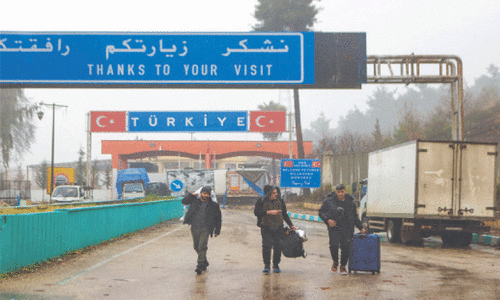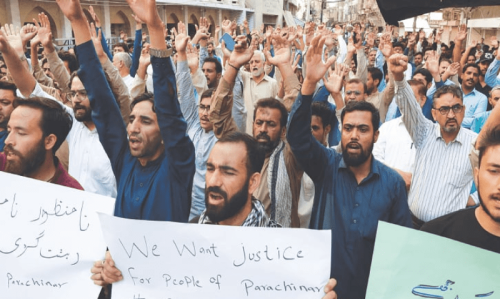CAIRO: Unesco pledged on Friday to help restore a renowned museum dedicated to Islamic history in Cairo that was devastated by a bomb last week, with officials expressing “shock” at the scale of the damage.
The Museum of Islamic Art was across the street from the truck bomb that targeted the Egyptian capital's security headquarters on Jan 24. It killed four people and caused damage to buildings for hundreds of meters (yards) around, smashing the museum's facade and sending debris crashing onto exhibits.
Egypt's Antiquities Minister Mohammed Ibrahim said that 164 of the 1,471 items on display were damaged, of which 90 could be reassembled or restored. Most of the 74 irreparably damaged items were glass and porcelain, smashed to powder.
On a tour of the building on Friday, shattered glass littered the floor while fragments and steel slabs from the broken windows lay all over.
''It was an outstanding museum and to see it now, inside at least, totally destroyed is a big shock for us,” Christian Manhart, head of Unesco's museums sections, said at a news conference.
The UN cultural agency had already set aside emergency funds of $100,000 on the same day of the blast and said further technical and financial help would follow after detailed reports were filed. Ibrahim said the American government would provide one million Egyptian pounds ($150,000) while a well-known actor, Mohammed Sobhy, said he was giving 50,000 pounds ($7,200).
Ibrahim said Egypt's National Library and Archives in the same building with the museum was also damaged. In addition, the blast smashed windows and caused other damage to historic mosques in the neighbourhood.
The 133-old museum host pieces from periods ranging from the seventh-century pre-Islamic era to the end of the 19th century. The collection includes carpets, coins, ceramics, jewellery, manuscripts, marble carvings and woodwork.
The building had recently undergone a $14.4 million renovation before it was hit.
Friday's visit to the museum was by a joint mission involving Unesco and two Paris-based protection and conservation groups, the International Council on Monuments and Sites and the International Committee of the Blue Shield. Manhart said the team will also prepare documents and figures to be presented to potential donors, which he was not authorized to name immediately.
Egypt has witnessed a surge in attacks on security forces after the ouster of Islamist President Mohammed Morsi in July. An Al Qaeda-inspired group based in the Sinai Peninsula called Ansar Beit al-Maqdis, or Champions of Jerusalem, claimed responsibility for many of the attacks, including the Jan. 24 bomb.
''How are we supposed to secure all these museums and historical buildings to face bombings? There's no country, no matter how far it reached in technology, that could stop damage from such terrorist attacks,” Ibrahim said.
Three years of unrest has devastated Egypt's economy, including the vital tourism industry, and the security vacuum has taken a heavy toll on the country's monuments.—AP














































Dear visitor, the comments section is undergoing an overhaul and will return soon.